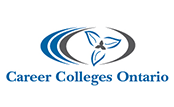
In the dynamic landscape of healthcare, the role of a Medical Office Assistant (MOA) is undergoing a significant transformation, thanks to the rapid integration of technology and evolving administrative processes. As you embark on your medical office assistant training journey, it is essential to understand future trends shaping how healthcare facilities are managed, and patients are cared for. Keep reading to discover the exciting industry advancements to come.
Prepare for the Telehealth Revolution
The rise of telehealth is transforming how healthcare services are delivered, and MOAs will play a crucial role in facilitating these virtual interactions. Telehealth refers to using digital information and communication technologies, such as computers and mobile devices, to access and manage healthcare services remotely. This innovative approach enables patients to consult with healthcare professionals via video calls, messaging, or other digital platforms, eliminating the need for physical presence in a medical facility. Telehealth encompasses various services, including virtual medical consultations, remote monitoring of patients' health conditions, and providing health-related information and education.
It aims to make healthcare more accessible, especially for individuals in remote areas or those with mobility issues, improve the efficiency of healthcare delivery, and reduce the costs associated with traditional in-person visits. Students in medical office assistant training should be well-versed in scheduling virtual appointments, managing telehealth platforms, and ensuring a smooth flow of information between patients and healthcare providers.

The rise of telehealth could transform your role after medical office administration training
Data Security and Privacy Improvements
As medical information continues to be digitized, the importance of data security and privacy has become more apparent. Technology is becoming more innovative and more functional, but so are cyber-criminals. To protect patients and medical establishments, medical office administrators must be well-trained in safeguarding patient information, complying with stringent regulations, and implementing robust cybersecurity measures to protect sensitive data from potential threats.
Enjoy Streamlined Administrative Processes After Medical Office Administration Training
The administrative burden on healthcare facilities will likely reduce as automation takes center stage. After medical office administration training, you can expect increased use of chatbots for appointment scheduling, automated billing systems, and AI-powered tools for routine administrative tasks.
This shift will allow you to focus more on patient care and less on time-consuming paperwork. This could be a much-needed improvement in patient care by reducing wait times, allocating more time to address patient concerns, and improving personalization of the patient experience.
Improved Collaboration With Healthcare Professionals
The future medical office administrator will be a collaborative partner in healthcare delivery. Communication and teamwork with physicians, nurses, and other healthcare professionals will be paramount.
The widespread use of industry-specific software programs will facilitate effective communication and information sharing in healthcare workplaces. To prepare for this trend, you should hone your interpersonal skills and learn to work seamlessly within interdisciplinary healthcare teams in a medical office assistant course.

After medical office administration training, you’ll be ready to meet the demands of the modern workplace
We are on the precipice of many exciting changes in the medical administration industry. Embracing technology, understanding the importance of data security, and adapting to evolving administrative processes will be crucial for success in this evolving field. As healthcare continues to advance, the role of the MOA will remain indispensable, playing a vital part in delivering efficient and patient-centered care.
Get the skills you need to take advantage of opportunities in the field with our 33-week diploma program. Our students receive cutting-edge training from expert instructors and put their knowledge to work in a full-time 4-week practical placement.
Are you ready to start your medical office assistant diploma?
Contact Algonquin Careers College to learn more!


